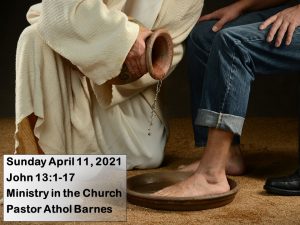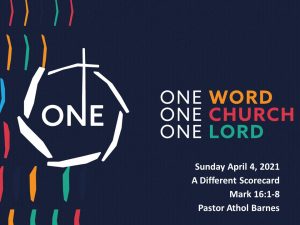
Throughout the Bible God encountered people on the tops of mountains. He revealed Himself to them and changed the course of human history. Over the next several weeks we will be looking at some of those encounters and the lessons we can learn from them.
One of the most significant mountain top experiences took place on Mt Moriah as God tested the faith of Abraham. We read about this in Genesis 22, and it is well known to Christians, Jews and Muslims1.
For Christians, the story is traditionally viewed in light of Abraham’s tremendous faith in response to the unthinkable request from God to sacrifice his only beloved son. However, there is so much we can learn from this mountain top experience.
- What does this account reveal about Abraham?
The first sentence in chapter 22 simply states, “After these things God tested Abraham…”.
Here is where we must remove our 21st century “Sunday School” lenses and see that this is a truly horrifying account in history. God asks Abraham to kill his own son. A human sacrifice is counter to everything we know about God. It offends us and challenges our sense of decency and understanding of God. Yet we are told that this was Abraham’s finest hour and his most glorious victory.
We have the advantage of knowing how the story unfolds, but for Abraham it must have been the most difficult few days of his entire life.
Amazingly, we see that Abraham remained silent and seemed passive. Abraham must have been going through tremendous inner turmoil as he scoured through hundreds of scenarios in his mind. Verse 4 of chapter 22 says that; “On the third day Abraham lifted up his eyes and saw the place from afar.” It appears that he had been walking for three days with his eyes on the ground before him, deep in thought and anguish. Abraham’s quick response and silence seems to indicate resigned numbness to God’s will, steeling himself against the emotions tearing through his heart.
After passing the test, God pronounces an incredible blessing over Abraham, but life doesn’t go back to the way it was. Most scholars agree that Isaac didn’t return with him to Beersheba (Gen 22:19), and shortly thereafter his wife, Sarah dies. There was an understandable strain in the relationships in the house of Abraham.
- What does the Account reveal about God?
In verse 2 God says, “Take your son, your only son Isaac, whom you love, and go to the land of Moriah…” From this it is evident that God does not recognize that Ishmael was even a child of Abraham. In verse 11 we see that God stopped the sacrifice of Isaac right at the point when there was no doubt that Abraham was going to go through with the killing of his son. God showed that He never intended to allow Abraham to kill Isaac and went on to explain the test to him.
This picture of God is not the soft and amicable Heavenly Father that our modern-day “Christianity” likes to portray. On the contrary, the picture of Abraham lowering the knife was, in God’s eyes, the passing grade of the test. I doubt that this display of the nature of God would be palatable to the masses in our post-modern society (Isaiah 55:8). But we must come to grips with the fact that the God of the Old Testament has not changed. What has changed is our relationship with him because of what Jesus did for us on the cross.
- What about Isaac?
Traditionally the focus is on Abraham, but what about Isaac?
According to Jewish historians, Isaac was between 25 and 37 years old and not an unsuspecting child. As mentioned earlier, Isaac left Abraham and the next time we see him is in the Negev in chapter 24. This event must have been incredibly traumatic for Isaac; his own father betrayed him and tried to kill him.
In contrast, according to a few ancient rabbinical documents, we read of Isaac as a willing sacrifice, actually asking his father to bind him tightly so that he would not move out of the way of the knife. This gives us a totally different picture of Isaac, one of a willing sacrifice and one who understood the importance of obeying his father and God.
- Jesus and Isaac
There are many parallels between the life of Isaac and that of Jesus.
Both Isaac and Jesus were foretold, and their names were given to their parents by God. They were both conceived miraculously, and both were called “beloved son”.
Leading up to Mt Moriah, Abraham was silent. So too, God the Father was silent in Gethsemane leading up to the crucifixion of His beloved Son.
The fact that the wood for the offering was laid on the back of Isaac is a symbol of the cross that Jesus would one day carry on his shoulders.
Leading up to his crucifixion, Jesus was unwavering in his path to the cross and he was silent during his trial. In the same way, Isaac walked silently alongside his father.
This account in essence is the salvation of Israel. Even though Isaac was not killed, the intervention by the angel saved the nation that was to come. So too, Jesus was sacrificed in order to save all nations.
Like Isaac, Jesus’ walk to the cross was not simply passive resignation to his fate, but rather there was a determination to obey his Father’s will (Luke 22:42).
By his resurrection, Jesus provided for the salvation for all who would believe in him. The staying of the sacrifice of Isaac, was his “resurrection”, and that provided for the continuation and fulfillment of God’s promise to Abraham (Hebrews 11:17-19)
What makes this account so horrifying is that God instructed Abraham to slaughter his own son, but if we really think about the crucifixion on Calvary we should be even more offended.
Because of our sins, God the Father required a perfect sacrifice. The only way we could be saved was by the perfect sacrifice of the spotless lamb of God (Isaiah 53:6, 2 Corinthians 5:21).
But here is the amazing truth that we miss, Abraham – the father had to raise his hand against his son.
Jesus knew that he would bear the incredible pain of the cross while bearing our sins. God the Father knew that he would have to inflict this pain on his own beloved son Jesus (Isaiah 53:10).
We must never miss the horror and the offense of the cross. God the Father inflicted His perfect wrath on God the Son.
Thank God today for the amazing gift of salvation.
1Muslim accounts of this event replace Isaac with Ishmael.



